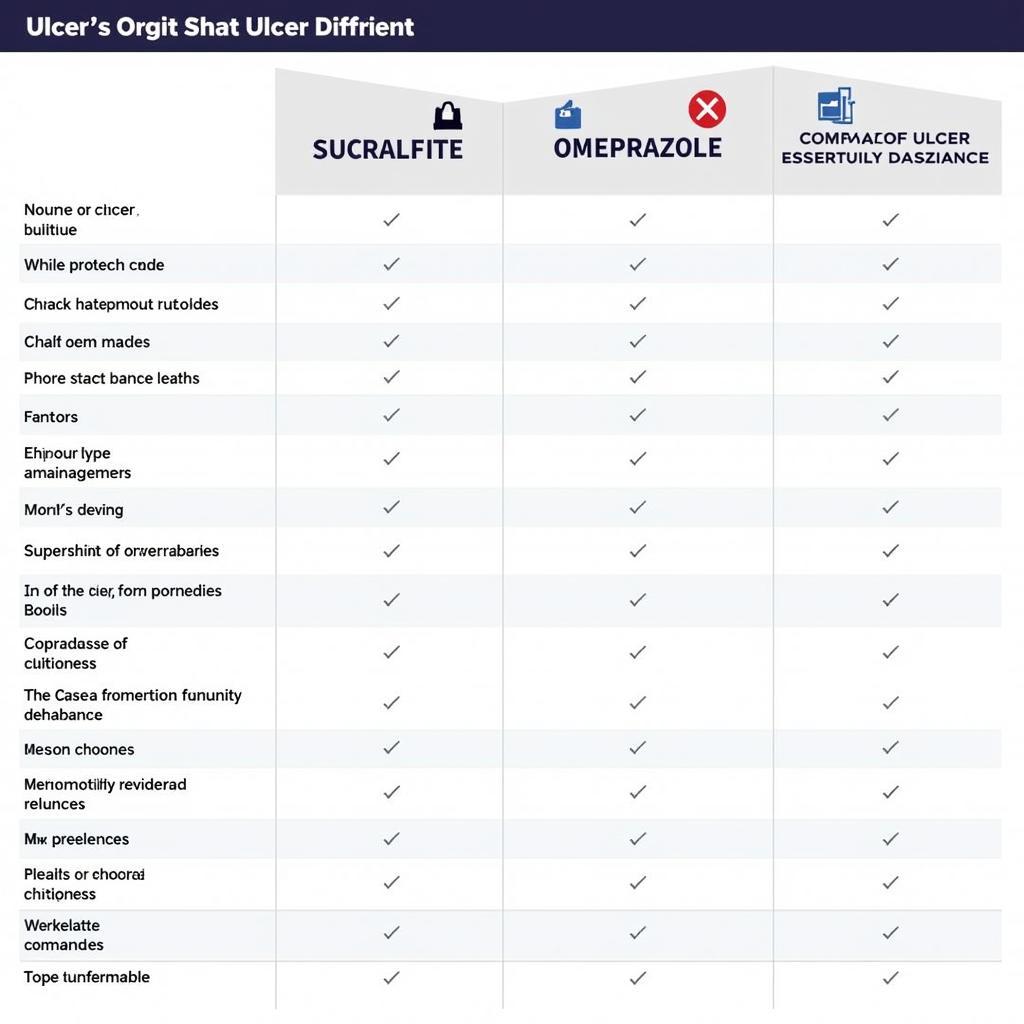Sucralfate In Horses is often used to treat and manage gastric ulcers. This guide will delve into the uses, dosages, and benefits of sucralfate, providing horse owners with the knowledge they need to care for their equine companions. We’ll explore how sucralfate works, its effectiveness, and answer frequently asked questions.
Understanding Sucralfate and Its Mechanism of Action
Sucralfate is a medication commonly prescribed for horses suffering from gastric ulcers. It works by forming a protective barrier over the ulcerated areas of the stomach lining. This barrier acts as a physical shield, preventing further irritation from stomach acid and allowing the ulcers to heal. Unlike other ulcer medications that reduce acid production, sucralfate focuses on protecting the damaged tissue. This makes it a valuable tool in equine ulcer management.
The unique mechanism of action also means sucralfate has fewer systemic side effects compared to other ulcer medications. This makes it a safe and effective option for long-term use in horses prone to recurring ulcers.
Dosage and Administration of Sucralfate for Horses
The appropriate dosage of sucralfate in horses is typically determined by the veterinarian based on the severity of the ulcers and the individual horse’s needs. However, a common dosage is 10-20mg/kg of body weight, administered two to four times daily. Sucralfate is available in both paste and powder forms, making administration relatively easy. The paste is often preferred for its convenience, while the powder can be mixed with feed or water.
It’s essential to follow the veterinarian’s instructions carefully regarding dosage and administration. Consistency is key when using sucralfate, as missing doses can compromise its effectiveness. For more information on the powder form, visit our page on sucralfate powder for horses.
The Benefits of Using Sucralfate in Horses
Using sucralfate offers several benefits for horses suffering from gastric ulcers. The protective barrier created by sucralfate not only shields the ulcers from stomach acid but also promotes healing by creating a more favorable environment for tissue repair. This can lead to a faster recovery and a reduction in discomfort for the horse.
 Benefits of Sucralfate for Equine Gastric Ulcers
Benefits of Sucralfate for Equine Gastric Ulcers
Furthermore, sucralfate’s targeted action minimizes the risk of disrupting the horse’s normal digestive processes. This is a significant advantage compared to acid-suppressing medications, which can sometimes interfere with nutrient absorption. Looking for the best ulcer supplement? Check out our guide on the best ulcer supplement for horses.
When Should You Consider Sucralfate for Your Horse?
Signs of gastric ulcers in horses can be subtle and easily overlooked. Symptoms may include poor appetite, weight loss, recurrent colic, and changes in behavior. If you suspect your horse may have ulcers, it’s crucial to consult with a veterinarian. They can perform a gastroscopy to confirm the diagnosis and recommend the appropriate treatment plan.
“Early diagnosis and treatment are crucial for managing equine gastric ulcers,” advises Dr. Emily Carter, DVM, specializing in equine gastroenterology. “Sucralfate is a valuable tool in our arsenal, providing effective relief and promoting healing.”
Comparing Sucralfate to Other Ulcer Treatments
While sucralfate is a highly effective treatment for gastric ulcers, other options are available. Omeprazole, for instance, is another commonly used medication. It works by reducing the production of stomach acid. Learn more about omeprazole dosage on our dedicated page: omeprazole for horses dosage. Your veterinarian can help you determine which medication is the best fit for your horse’s specific needs.
 Comparison of Equine Ulcer Treatments
Comparison of Equine Ulcer Treatments
Another expert, Dr. Sarah Mitchell, PhD, an equine nutritionist, adds, “It’s important to remember that medication is only one part of the equation. Proper management practices, including reducing stress and ensuring a balanced diet, are also essential for preventing and managing ulcers.”
Conclusion
Sucralfate in horses offers a safe and effective method for treating and managing gastric ulcers. Its unique mechanism of action provides targeted relief and promotes healing without disrupting the horse’s normal digestive processes. Remember to consult with your veterinarian for proper diagnosis and treatment recommendations. Understanding the benefits and usage of sucralfate can help horse owners ensure the best possible care for their equine companions.
FAQ
- How long does it take for sucralfate to work in horses?
- Can sucralfate be used long-term in horses?
- What are the potential side effects of sucralfate in horses?
- Can sucralfate be used with other medications?
- Is sucralfate available over-the-counter?
- How should sucralfate be stored?
- How can I tell if my horse’s ulcers are healing?
Scenarios
- Scenario 1: A performance horse experiences intermittent colic and decreased appetite. This could indicate ulcers, and sucralfate might be a suitable treatment option.
- Scenario 2: A horse recovering from surgery or illness develops stress-induced ulcers. Sucralfate can help protect the stomach lining and facilitate healing.
Further Reading
- Explore our article on where to purchase sucralfate: where to buy sucralfate for horses
For assistance, please contact us at Phone: 0772127271, Email: [email protected], or visit us at QGM2+WX2, Vị Trung, Vị Thuỷ, Hậu Giang, Việt Nam. Our customer service team is available 24/7.